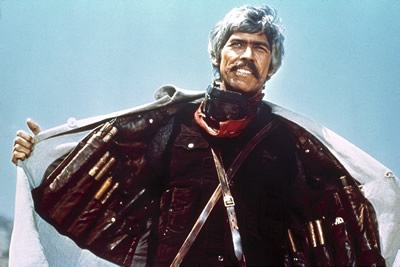Klaus Kinski shooting a man in the back in The Great Silence deprived western violence of its civilizing pretension, denouncing a society founded on prevarication with 'Manifest Destiny' replacing 'Genocide' in the national vocabulary. The cruelty and abuses those films staged, their lonely riders fighting against a fate they did not choose, resonated loudly among young and angry working class audiences who had started to oppose injustices with direct action, sabotage and creative insurgency. As the debate around the use of violence grew hotter in occupied factories and on student campuses, films such Vamos a Matar, Compañeros and A Bullet for the General were released. These two titles in particular were amongst the favorite films of extra-parliamentary Marxists groups, which felt their concrete political experiences found a sort of fictional integration in those films endorsing the same positions they advocated. Some years later, in 1981, when both the cinematic genre and the prospect of an armed insurrection against the state had lost their momentum, Spaghetti Westerns superstar Gian Maria Volonté (A Fistful of Dollars, A Bullet for the General, Face To Face) helped Oreste Scalzone, one of the leaders of Autonomia Operaia (Autonomous Workers) and facing terrorism charges, to escape to France via Corsica on his sail-boat. This anecdotal showdown between the state, those who questioned its legitimacy and the outlaws of the imaginary renders homage to the complicities that cinema and reality sometimes share (not only in Iran or China apparently).
Read More | "Storming the West" | The Celluloid Liberation Front | ᔥlibcom
